Directions (1-5): Read the given information carefully and answer the following questions.
A, B, C and D started a business in partnership. A invested Rs. 5000 for whole period whereas the average of initial investment for all four is Rs. 5975. Investment made by D is 25% more than B and ratio of investment made by B to that of C is 10 : 9. Time period for which B invested his amount is 2/3rd of that of A. Sum of time period for which C & D invested is equal to total time period for which A & B invested and profit share of C is 18/79th of total profit at the end of the year.
Q1. Find ratio of period of investment of C to that of D?
(a) 1 : 1
(b) 1 : 2
(c) 2 : 3
(d) 3 : 2
(e) 4 : 3
Q2. Difference between investment of D & C is what percent of difference between investment of B & D?
(a) 125%
(b) 100%
(c) 150%
(d) 140%
(e) 160%
Q3. If at the end of business term, total profit is Rs. 15,800, then find the difference between profit share of A & D.
(a) Rs. 800
(b) Rs. 1200
(c) Rs. 1000
(d) Rs. 1500
(e) None of these
Q4. Profit share of B is what percent of profit share of A?
(a) 80%
(b) 75%
(c) 60%
(d) 100%
(e) 65%
Q5. Investment of C & D together is approximately what percent of total investment of all the four?
(a) 45%
(b) 48%
(c) 50%
(d) 52%
(e) 54%
Directions (6-10): Study the passage given below carefully and answer the following questions.
There are 5 persons – Deepak, Shivam, Dharam, Harish & Ankit. Amount of Deepak is 40% less than amount of Shivam. Amount of Dharam is equal to average of amount of Deepak and Shivam. Harish amount is Rs.3000 more than Shivam’s amount. Ratio of amount of Ankit to that of Harish is 7 : 3 and Harish’s amount is 137.5% of Dharam’s amount.
Q6. If Ankit invested his amount in a scheme offering 20% p.a. at CI for 2 years, then find interest received by Ankit from the scheme.
(a) Rs.13,200
(b) Rs.7,920
(c) Rs.33,880
(d) Rs.10,560
(e) Rs.14,520
Q7. If Shivam and Dharam invested their respective amounts in a partnership for 9 months and 12 months respectively and total profit after the end of 12 months is Rs.37200, then find profit share of Dharam.
(a) Rs.21,600
(b) Rs.28,800
(c) Rs.24,000
(d) Rs.19,200
(e) Rs.12,800
Q8. If Harish invested his amount across two schemes for 3 years – one scheme offering 15% p.a. at SI and other one offering 18% p.a. at SI and he received total interest of Rs.16,650 from both schemes together, then find amount invested by Harish at 15% p.a.
(a) Rs.13,000
(b) Rs.16,000
(c) Rs.15,000
(d) Rs.20,000
(e) Rs.11,000

Q10. Find average of amount of Deepak, Dharam, Shivam, Harish and Ankit.
(a) Rs.38,000
(b) Rs.37,000
(c) Rs.37,600
(d) Rs.38,200
(e) Rs.36,400
Directions (11-15): The bar graph given below shows the total number of students before promotion in different classes of a school and the table shows the percentage of students in each class who are promoted to the next higher class.
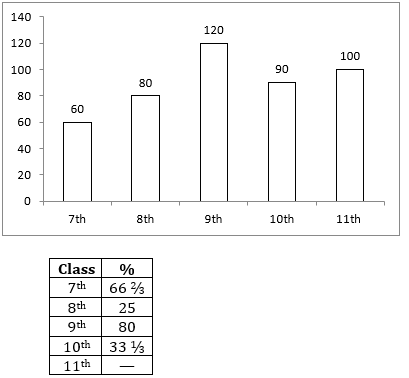
Q11. What is the percentage of students from class 8th and 9th together that are promoted to next higher class ?
(a) 65%
(b) 58%
(c) 43%
(d) 34%
(e) none of these
Q12. If 20% of students of class 7th are demoted to class 6th, then find the ratio of no. of students who remain in class 7th to the number of students who get promoted to class 11th. (Note: no student from class 7th leaves the school)
(a) 2∶15
(b) 1∶5
(c) 4∶15
(d) 1∶3
(e) none of these
Q13. The students who get promoted to class 11th go for one of the three streams — Science, Arts or commerce in ratio 3 : 1 : 2 respectively. Find the difference between number of students who opted for Science and those who opted for Arts out of the promoted students.
(a)12
(b)15
(c)13
(d)10
(e) none of these
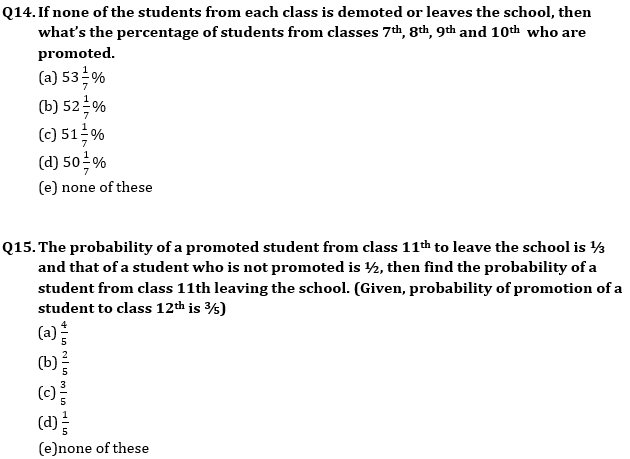
Solutions
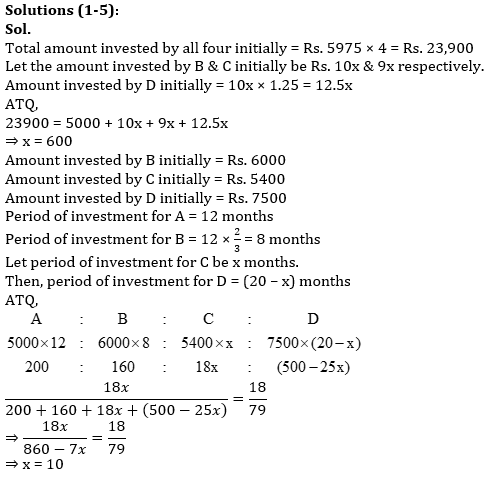
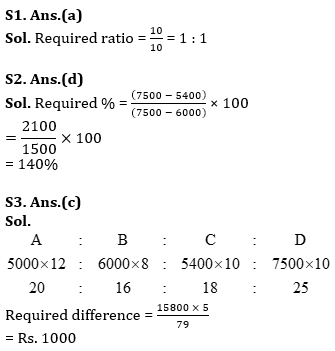
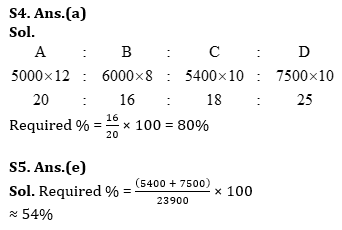
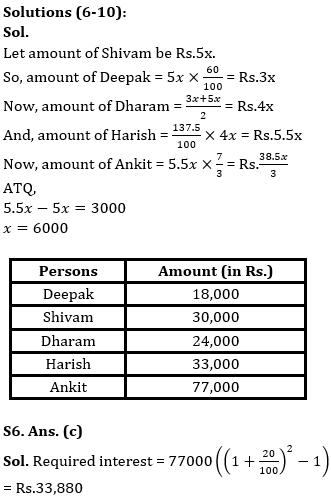
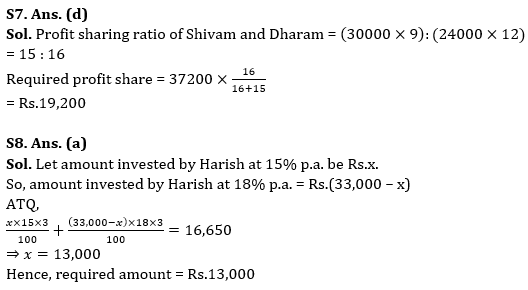
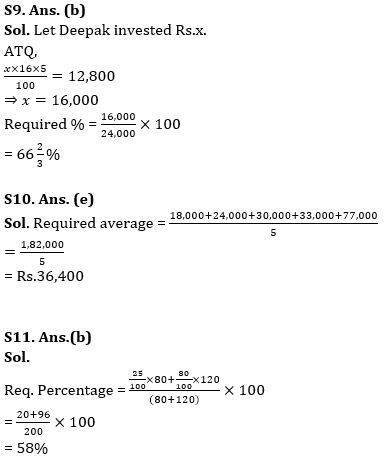
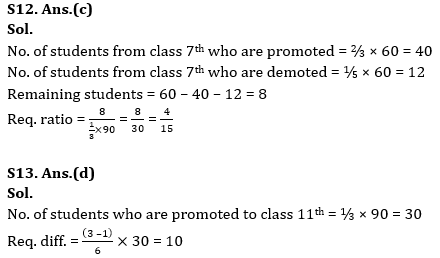
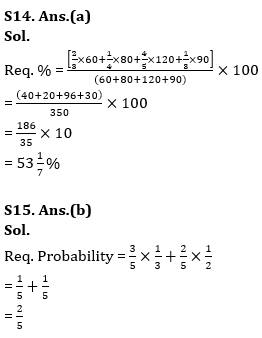

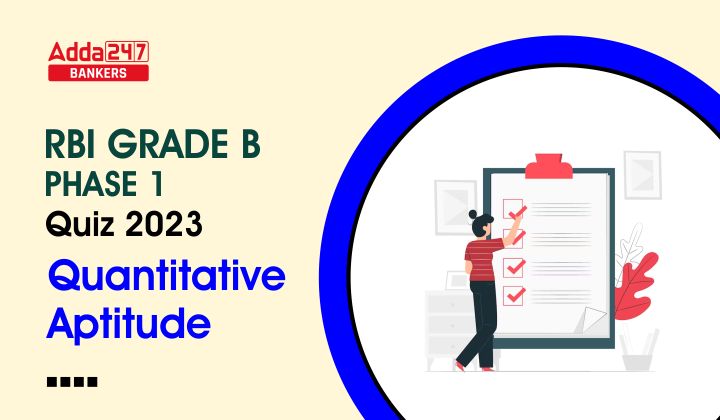
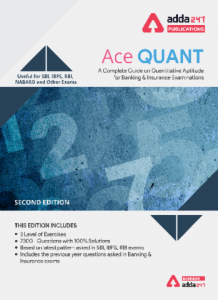


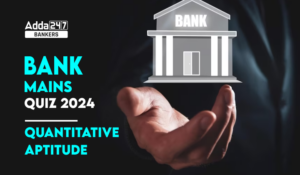 Quantitative Aptitude Quiz For Bank Main...
Quantitative Aptitude Quiz For Bank Main...
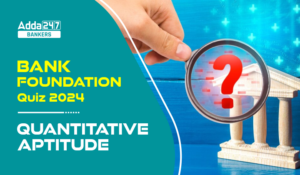 Quantitative Aptitude Quiz For Bank Foun...
Quantitative Aptitude Quiz For Bank Foun...





